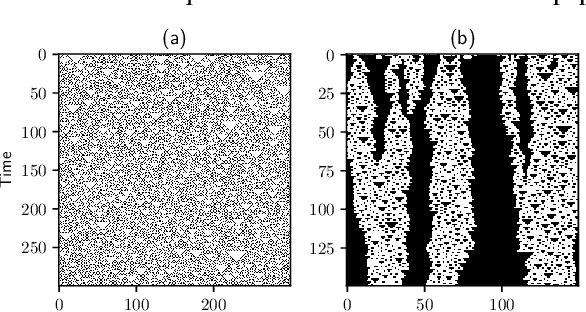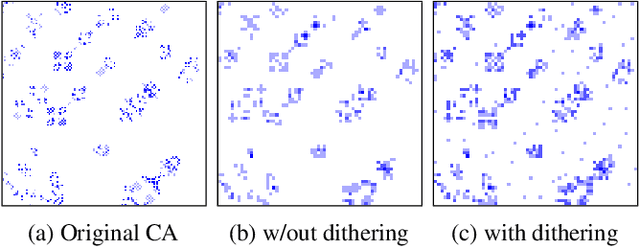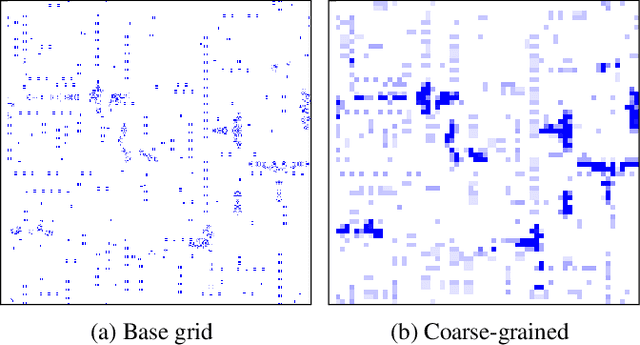Visualizing computation in large-scale cellular automata
Paper and Code
Apr 01, 2021



Emergent processes in complex systems such as cellular automata can perform computations of increasing complexity, and could possibly lead to artificial evolution. Such a feat would require scaling up current simulation sizes to allow for enough computational capacity. Understanding complex computations happening in cellular automata and other systems capable of emergence poses many challenges, especially in large-scale systems. We propose methods for coarse-graining cellular automata based on frequency analysis of cell states, clustering and autoencoders. These innovative techniques facilitate the discovery of large-scale structure formation and complexity analysis in those systems. They emphasize interesting behaviors in elementary cellular automata while filtering out background patterns. Moreover, our methods reduce large 2D automata to smaller sizes and enable identifying systems that behave interestingly at multiple scales.
 Add to Chrome
Add to Chrome Add to Firefox
Add to Firefox Add to Edge
Add to Edge